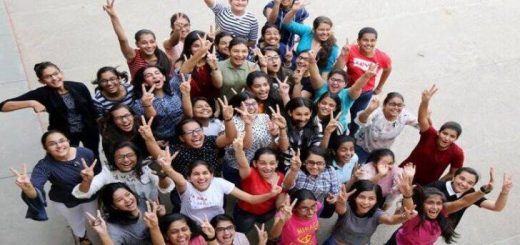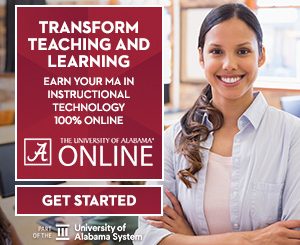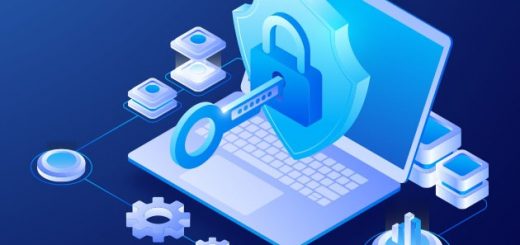OPINION: Political gridlock is real. Bolstering education and the workforce can provide consensus
Education and education access are directly connected to economic growth. Despite the dysfunction in Congress, especially over border issues and foreign aid, there are key education bills that can provide not only solutions for the issues they address but also models for getting things done across a range of other issues.
Two pieces of legislation that could improve our economic future by advancing education and workforce development passed the Committee on Education and the Workforce a few weeks ago with broad and bipartisan support, demonstrating that consensus is not only possible and practical but achievable.
The success of these bipartisan solutions could break down walls of division and better the lives of our nation’s students while bolstering our cities’ economies.
In mid-December, the committee approved the Bipartisan Workforce Pell Act, with support from both Republican Chairwoman Virginia Foxx and ranking Democratic member Bobby Scott, who co-sponsored the legislation.
The bill would expand Pell Grants to provide needed tuition assistance for short-term education and training directly linked to career opportunities, easing the costs of attaining the education and skills that all students, and especially low-income students, desperately need.
The bill would also fund access to online learning, further cutting costs and making education more flexible and accessible. A vast array of students across red and blue states would benefit from the bill’s commonsense approach, as would our community colleges, employers and, by extension, all Americans.
Related: ‘August surprise’: That college scholarship you earned might not count
That same House Committee voted, a bit earlier, also with bipartisan support, to reauthorize the Workforce Innovation and Opportunity Act. This legislation includes federal funding to support education and skills-based training directly connected to career opportunities and economic success.
This too will directly impact our nation’s community colleges, which are the key engines of economic mobility.
Under the bill, existing Labor Department funding could be repurposed to provide eligible workers with individual, customized education and training accounts, leading to improved career opportunities.
The bill would also specifically address the education and training needs of our incarcerated youth by providing them with the education and skills needed to ease their transition into a stable future. And it would add accountability provisions to ensure that spending for education will lead to concrete job growth. Like the Pell legislation, the bill has broad support among education and business leaders.
Passing short-term Pell along with passing workforce and education legislation would provide a clear pathway from high schools to colleges and careers, ensuring a brighter future for millions of students across the nation.
Both pieces of legislation could potentially pass the House and the Senate and be signed into law early in the New Year.
Smart investments in Education can be both the answer to governmental gridlock and spur economic progress.
Of course, as is usually the case with legislation that clears committee hurdles, the bills contain small flaws that demand fixes.
For example, in the Pell bill, one item that could derail passage in the full House and Senate and set back the nation’s commitment to social mobility for students is a provision calling for a reduction in student loan eligibility for students at some of the most selective colleges. Another flaw is that the legislation could open the door to abuse by predatory for-profit colleges. These parts of the plan can easily be fixed to ensure passage.
Passing short-term Pell and workforce and education legislation would provide a clear pathway from high schools to colleges and careers, ensuring a brighter future for millions of students across the nation.
We’ve seen bipartisan support deliver dynamic education and economic growth before, most recently when Democrats and Republicans in both the House and the Senate united behind Democratic Senator Chuck Schumer’s CHIPS and Science Act.
That act mobilized efforts to restore American leadership in the semiconductor industry while creating good-paying jobs and reducing the cost of automobiles, refrigerators and computers.
The CHIPS and Science Act, with bipartisan support, also included a huge investment in education research, and became a model for the progress that can be achieved when parties come together to better the lives of the people.
Now is the time for more bipartisan progress. Passage of these two critical education bills would be a fine start, fueling job creation and bettering the skills and future incomes of our nation’s students, who need our support now more than ever. And the bills’ passage would provide a model for how to eliminate gridlock and address our core economic challenges in a positive manner.
Most polling suggests that the top-of-mind topics for most Americans are the proverbial “kitchen table issues,” led by the economy and its effect on working-class Americans.
These bills address those issues. Americans with the education and skills to be employed in growing industries will earn higher wages, and the increased tax revenues from those wages will support our nation’s schools at all levels. And these bills’ prioritization of our community colleges will help them become an even stronger engine for jump-starting and sustaining America’s growth.
In recent years, it’s begun to seem that dysfunction is the one thing that Washington can be reliably counted on to provide. But let’s not simply accept that Congress can no longer come together to support initiatives that meet our needs and provide enhanced opportunities.
For many years, education issues have divided Americans; these core education bills can unite us. They deserve prompt action.
Stanley Litow served as deputy chancellor of schools for New York City and as president of the IBM Foundation. He now serves as adjunct professor at Columbia University and as trustee of the State University of New York where he chairs the Academic Affairs Committee.
This story about breaking political gridlock was produced by The Hechinger Report, a nonprofit, independent news organization focused on inequality and innovation in education. Sign up for Hechinger’s newsletter.




